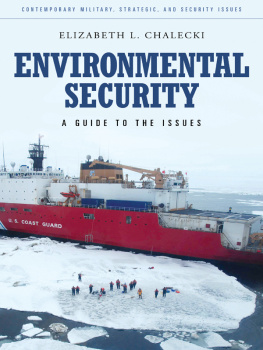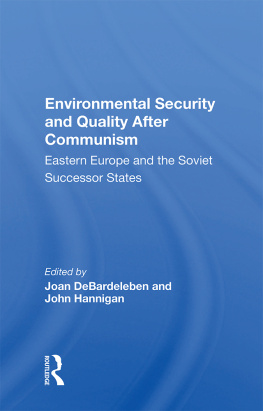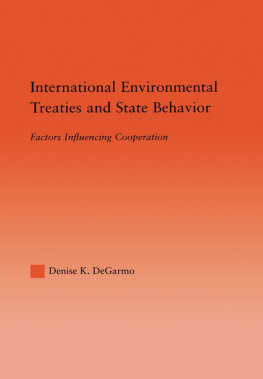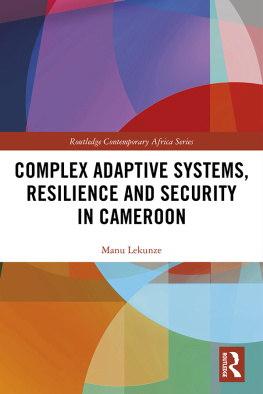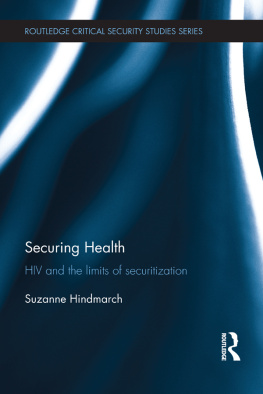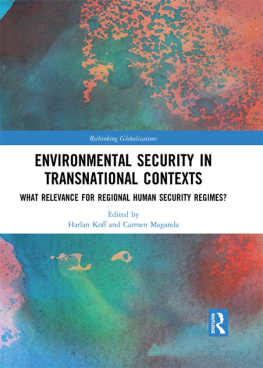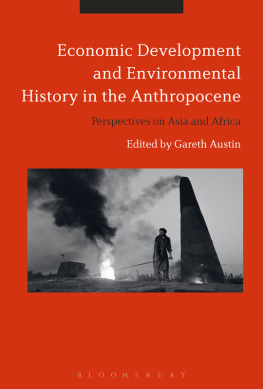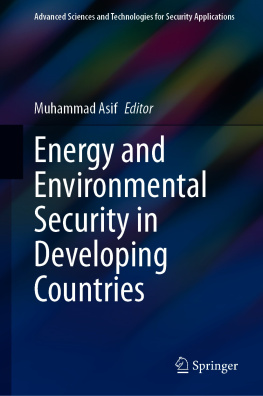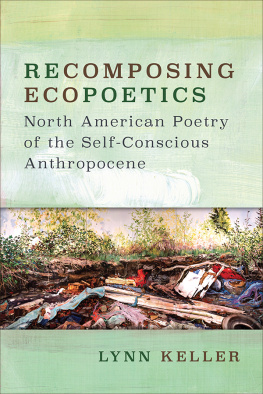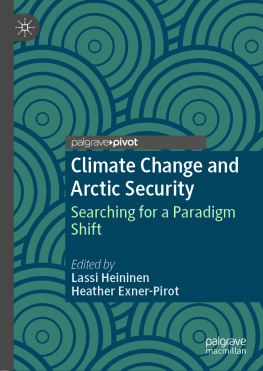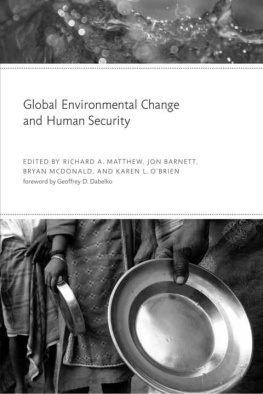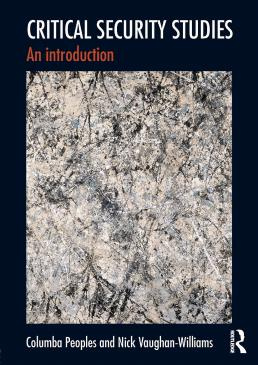Using a critical approach to environmental security this innovative study investigates Western policy discourses on large-scale environmental change and resource conflict in Asia. It clearly shows just how complicated the links between security and environment are and the difficulties these present to intelligent policy making in the Anthropocene.
Simon Dalby, Wilfrid Laurier University, Canada
This book makes an important contribution to the emerging debate on the Anthropocene the new geological epoch of our own making. Based on a comprehensive and thorough analysis of environmental security practices and discourses the book addresses a crucial question: What does it mean to be secure in the Anthropocene?
Delf Rothe, Institute for Peace Research and Security Policy, Germany
In this important book Judith Nora Hardt argues that the Anthropocene is both a challenge to being secure and to how we study security. To remedy this situation she re-conceptualises environmental security through an ambitious merger of Green Political Theory, Anthro- pocene Studies and Critical Security Studies. This study is relevant for everyone interested in (environmental) security; this book also features a much needed systematic engagement with the multi-actor Environment and Security Initiative (ENVSEC).
Rita Floyd, University of Birmingham, UK
Drawing on insights from Critical Security Studies and Green Political Theory, Judith Nora Hardt describes the field of environmental security as critically important to the future of humankind, but biased towards a traditional geopolitical worldview and a modestly reform- ist global agenda. Her compelling reconceptualization of the field as Critical Environmental Security Studies adopts a social-ecological perspective that links the security of the environ- ment to the welfare of humankind and supports a transformative approach to addressing the challenges of the Anthropocene.
Richard Matthew, University of California Irvine, USA
Judith Nora Hardts book provides a much needed analysis of the different perspectives on environmental security and of the challenges of reconceptualising security in the Anthro- pocene. The theoretical framework provided and the study of the ENVSEC initiative make the book a relevant contribution to explore how security practices can be transformed.
Maria Julia Trombetta, The University of Nottingham Ningbo, China
The existential threat posed by Anthropocene and ecological challenge has been largely ignored by social sciences. This innovative book helps to fill that gap through its normative and consistent analysis of environmental security. Based on different critical approaches, it decisively contributes to the emerging Green Theory in International Relations.
Karlos Prez de Armio, The University of the Basque Country, Spain
The Anthropocene is a game-changer for security studies. No concept or assumption remains untouched by it. What are the new threats and possibilities and who are the new actors and agencies in the Anthropocene?
What does security mean when the knowledge, practices and assumptions meant to secure humanity are themselves part of the problem? Judith Hardts detailed empirical and conceptual exploration of environmental security will be a must-read for anyone involved in this field, student or practitioner.
David Chandler, University of Westminster, UK
Environmental Security in the Anthropocene
This book provides a critical assessment of the theories and practice of environmental security in the context of the Anthropocene.
The work analyses the intellectual foundations, the evolution and different interpretations, strengths and potential of the link between environment and security, but also its weaknesses, incoherencies and distortions. To do so, it employs a Critical Environmental Security Studies analytical framework and uniquely places this analysis within the context of the Anthropocene. Furthermore, the book examines the practicetheory divide, and the political implementation of the environmental security concept in response to global environmental change and in relation to different actors. It pays significant attention to the Environment and Security Initiative (ENVSEC), which is led by different programmes of the United Nations, the Organization for Security and Cooperation in Europe (OSCE) and until recently by the North Atlantic Treaty Organization (NATO), among others, and has largely been overlooked in the academic literature to date. The goal is to study how environmental security practice could inform and shape the environmental security theory, and also to explore how, conversely, new theoretical insights could contribute to the enhancement of environmental security activities.
This book will be of great interest to students and academic scholars of environmental security, Critical Security Studies, Green Political Theory, Global Governance and International Relations in general.
Judith Nora Hardt is Postdoctoral Research Fellow at the University of Hamburg, Germany, and holds a PhD in International Relations from the University of the Basque Country, Spain.
Routledge Critical Security Studies series
Titles in this series include:
The New Spatiality of Security
Operational uncertainty and the US military in Iraq
Caroline M. Croser
Human Security as Statecraft
Structural conditions, articulations and unintended consequences
Nik Hynek
US Domestic and International Regimes of Security
Pacifying the globe, securing the homeland
Markus Kienscherf
Securitisation and the Iraq War
The rules of engagement in world politics
Faye Donnelly
Ethics and Global Security
A cosmopolitan approach
Anthony Burke, Katrina Lee Koo, and Matt McDonald
(In-)Security and the Production of International Relations
Securitisation and the making of foreign affairs in Europe
Jonas Hagmann
Food Security Governance
Empowering communities, regulating corporations
Nora McKeon
Biopolitics, Governmentality and Humanitarianism
Caring for the population in Afghanistan and Belarus
Volha Piotukh
Ethical Security Studies
A new research agenda
Edited by Jonna Nyman and Anthony Burke
Securing Health
HIV and the limits of securitization
Suzanne Hindmarch
Researching Non-State Actors in International Security
Theory and Practice
Edited by Andreas Kruck and Andrea Schneiker
Environmental Security in the Anthropocene
Assessing Theory and Practice
Judith Nora Hardt
First published 2018
by Routledge
2 Park Square, Milton Park, Abingdon, Oxon OX14 4RN
and by Routledge
711 Third Avenue, New York, NY 10017
Routledge is an imprint of the Taylor & Francis Group, an informa business
2018 Judith Nora Hardt
The right of Judith Nora Hardt to be identified as author of this work has been asserted by her in accordance with sections 77 and 78 of the Copyright, Designs and Patents Act 1988.


